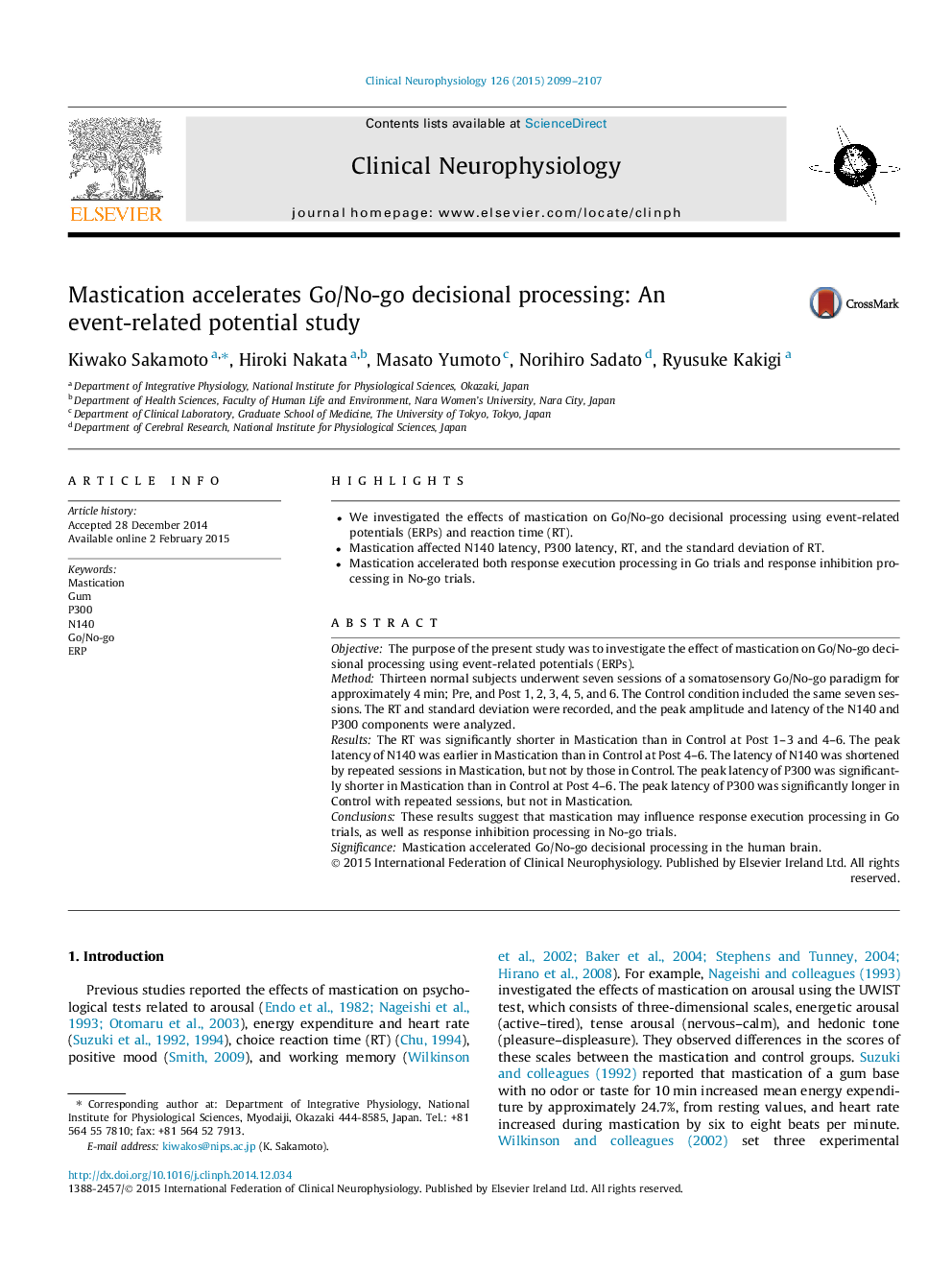| Article ID | Journal | Published Year | Pages | File Type |
|---|---|---|---|---|
| 6007776 | Clinical Neurophysiology | 2015 | 9 Pages |
â¢We investigated the effects of mastication on Go/No-go decisional processing using event-related potentials (ERPs) and reaction time (RT).â¢Mastication affected N140 latency, P300 latency, RT, and the standard deviation of RT.â¢Mastication accelerated both response execution processing in Go trials and response inhibition processing in No-go trials.
ObjectiveThe purpose of the present study was to investigate the effect of mastication on Go/No-go decisional processing using event-related potentials (ERPs).MethodThirteen normal subjects underwent seven sessions of a somatosensory Go/No-go paradigm for approximately 4Â min; Pre, and Post 1, 2, 3, 4, 5, and 6. The Control condition included the same seven sessions. The RT and standard deviation were recorded, and the peak amplitude and latency of the N140 and P300 components were analyzed.ResultsThe RT was significantly shorter in Mastication than in Control at Post 1-3 and 4-6. The peak latency of N140 was earlier in Mastication than in Control at Post 4-6. The latency of N140 was shortened by repeated sessions in Mastication, but not by those in Control. The peak latency of P300 was significantly shorter in Mastication than in Control at Post 4-6. The peak latency of P300 was significantly longer in Control with repeated sessions, but not in Mastication.ConclusionsThese results suggest that mastication may influence response execution processing in Go trials, as well as response inhibition processing in No-go trials.SignificanceMastication accelerated Go/No-go decisional processing in the human brain.
